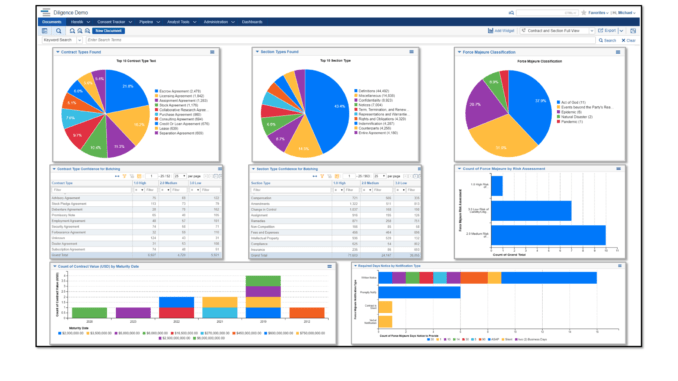
GravityStack, the tech group of Reed Smith, has now expanded its NLP contract analysis offering to include searching for force majeure clauses. The move underlines the commitment of the group to growing the doc analysis software side of its business, which already helps clients analyse contracts related to LIBOR and ISDA, as well as NDAs and more.
In short, Reed Smith, via GravityStack – the separated, but wholly owned tech group, is going to market with its own contract analysis solution, albeit centred upon the legal AI startup Heretik. And they also work with Relativity for this, although mainly as a ‘storage point’.
Bryon Bratcher, Managing Director of GravityStack, told Artificial Lawyer that the group, which now has over 50 people and eight figure revenues, is developing their own algorithms to provide bespoke NLP capabilities for use in contract analysis.
In turn this tech-led doc analysis work is producing human lawyer review work for Reed Smith to help complete review/analysis projects, so it’s a win-win.
Bratcher noted that although they have this capability, it’s just one aspect of a wider, entire contract lifecycle management (CLM) offering they are providing, along with the additional services of GravityStack, which includes tech consulting and building bespoke software solutions for clients.
At present the group is offering four tech-based products, but all are designed to fit into larger workflows and connect to what Reed Smith does for its clients. These are: Pipeline – for legal project management, Periscope – to improve eDiscovery work, Stack-et – a ticketing application for customer support, and Diligence, its combined CLM and NLP-driven doc analysis system – which is what the latest development is part of.
In terms of the force majeure capability, Bratcher said that after working on a tech client’s contracts they could see just how much Covid-19 was impacting agreements and triggering a wide range of notifications that needed to be made to various parties.
Using their new capability they could rapidly speed up the process when dealing with large numbers of contracts. He added that as part of the wider CLM offering, they could also help with automatically drafting letters that would need to be sent as part of a notification process.
But, beyond that, for Artificial Lawyer the bigger story is just how serious the group is about going to market with their own NLP contract analysis offering, (via Heretik) .
‘Are you now a competitor to other legal AI companies in the market?’ this site asked. Bratcher replied that in some ways you could see it like that, but overall they still made use of a wide range of tools in the market and would help clients with whatever software they wanted, and that would include established software vendors offering a similar capability.
Either way, an interesting development and proof that law firms can make spun-out tech groups into successful businesses. The challenge it seems is finding the right use cases and building compelling products – perhaps in conjunction with 3rd party vendors already in the market.
Another challenge is for the partners of the supporting law firm to really get behind the tech group, rather than seeing it as a half-marketing/half-innovation project.
‘This is for real now,’ Bratcher concluded, and that certainly seems to be the case.
—
(AL Note: Due to a glitch in the matrix earlier this week, this article has been reposted today.)
1 Trackback / Pingback
Comments are closed.